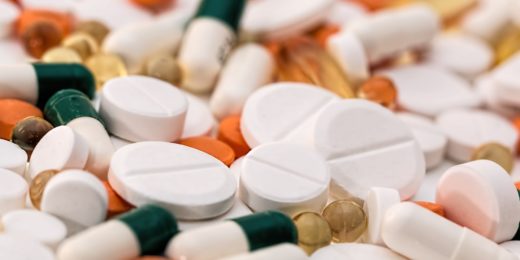A drug shortage seems like something that would happen somewhere else, or perhaps decades ago -- not in the United States in 2019. Yet, the U.S. is currently being buffeted by these shortages. Supplies of critical drugs, such as generic sterile injectable drugs dry up, leaving pharmacists and physicians just weeks, or even less, to scramble to develop a plan b -- if there is one.
"One of the aspects of drug production that we take for granted, at least in the United States, is that there's a constant supply of medications at all times," Stanford anesthesiologist Ed Mariano, MD, told me. "As a physician with a unique specialty in medicine, anesthesiology, the ongoing crisis of drug shortages in the United States is frankly terrifying."
These shortages trouble Mariano and he's working to do something about them. I spoke with him for this 1:2:1 podcast soon after he had returned from Washington, D.C. for a congressional briefing on the issue.
The shortages have a host of causes and, as expected, pharmaceutical company profits are among them. But sometimes, the cause of a particular shortage is rather straightforward. As Mariano explains, the closure of one manufacturing plant in Kansas contributed to a shortage of injectable opioids.
"It really showed just how fragile our pipeline is. There was a ripple effect across the country," Mariano said.
Drug manufacturers must adhere to tough standards enforced by the U.S. Food and Drug Administration. When quality problems are found, and the supply is disrupted, there isn't a vast back-up system at the ready to step in, Mariano pointed out.
One thing that particularly struck me about Mariano's testimony at the briefing was that he used the words "moral injury" to describe the impact of drug shortages on physicians. I asked him to explain.
"When faced with drug shortages, when the right thing, the right available medication, is not at your disposal, then to me that is moral injury. That forces you to use alternatives that may not be the best for your patient, if they even exist at all," Mariano said. This moral injury leaves doctors unable to provide the best care for their patients and can even contribute to physician burnout, he said.
There is an attempt to remedy drug shortages. Senate Bill 2723, co-sponsored by Senators Susan Collins (R-Maine) and Tina Smith (D-Minnesota), aims to strengthen manufacturing and increase accountability on drug manufacturers "to try to identify their own root causes and provide better warning systems for their customers," said Mariano.
In a report published in October, the FDA recommended that drug buyers like hospitals consider paying higher prices for older generic drugs. Paying more, the report said, would encourage drug companies to prioritize drugs.
So what about the patient entering any hospital in the U.S. What should they be asking?
I do think it is really important that patients be aware of drug shortages and know that it's okay to ask about them. This is something that every hospital, every outpatient surgery center, every health care system in the U.S. is dealing with. If people understand how important this is to their own care or the care of their loved ones, they should say something.
Photo by Joshua Coleman






